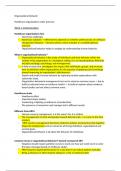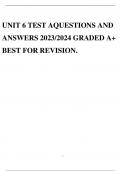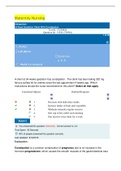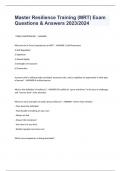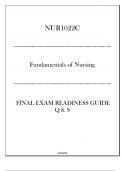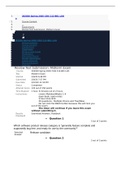Samenvatting
Summary lectures and mandatory literature Organizational behavior
- Instelling
- Erasmus Universiteit Rotterdam (EUR)
This document contains a summary of the lectures and the mandatory literature of the course Organizational behavior that is part of the Master Health Care Management at the Erasmus University.
[Meer zien]
